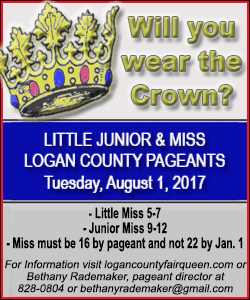|
Trump officials to unveil
plan to cut factory rules this week
 Send a link to a friend
Send a link to a friend
 [June 12, 2017]
By David Lawder [June 12, 2017]
By David Lawder
WASHINGTON
(Reuters) - The Trump administration intends to unveil this week a plan
to trim regulations it believes constrain U.S. manufacturing growth,
potentially affecting environmental permits, worker safety and labor
rules, an administration official said.
The U.S. Commerce Department's regulations "hit list" recommendations
follow more than three months of study and consultation with industry on
ways to streamline regulations and ease burdens on manufacturing firms.
A Trump administration official with knowledge of the recommendations to
be sent to the White House said the Environmental Protection Agency's
complex permitting rules will be a key focus, echoing comments to
Reuters by Commerce Secretary Wilbur Ross last month.
The 171 public comments submitted by companies and industry groups offer
a strong hint to priorities for Commerce's streamlining efforts, with
numerous industry groups and firms complaining that EPA air quality
permit rules for new facilities are often redundant.
The report will analyze the submissions and "will identify a lot of
problems and lay out ways to take responsible actions," said the
official, who declined to be identified by name. The process has looked
at many regulations finalized under Trump's predecessor, President
Barack Obama.

A common demand from industry was that the Trump administration should
reject a planned tightening of ozone rules under the U.S. Clean Air
Act's National Ambient Air Quality Standards, with several groups
arguing this would expose them to increased permitting hurdles for new
facilities, raising costs.
3M Co <MMM.N> said other permitting requirements under the Clean Air Act
contained "overlapping rules, redundant requirements, conflicts between
rules and undue complexity."
The National Association of Manufacturers said the EPA's review
requirements for new sources of emissions such as factories can add
$100,000 in costs for modeling air quality to a new facility and delay
factory expansions by 18 months.
It added that EPA should find ways to ease burdens for smaller projects
and smaller firms.
Also drawing complaints from construction groups and iron foundries is
an incoming Occupational Safety and Health Administration rule reducing
by 80 percent the amount of crystalline silica dust that can be inhaled.
The dust, common on construction sites, can cause lung cancer, according
to OSHA, but industry groups say reducing it to those levels will be
prohibitively expensive.
"To meet these much lower levels, new engineering controls and other
measures will become necessary within the roofing industry," said the
National Roofing Contractors Association.
[to top of second column] |

U.S. President Donald Trump waves as he boards Air Force One at
Joint Base Andrews outside Washington, U.S., before traveling to
Bedminister, New Jersey for the weekend, June 9, 2017. REUTERS/Yuri
Gripas

Trump
has already taken steps to roll back some not fully completed Obama-era
environmental regulations such as restrictions on coal-fired power plants and a
clean water rule greatly restricting runoff into small streams.
But the Commerce list may target some rules already on the books.
"We are at the outset of what we think will be a very intense deregulatory
agenda from the Trump team," said Amit Narang, regulatory policy advocate at
Public Citizen, a consumer watchdog group. "We are concerned that they are
looking to gut regulations that benefit workers and benefit consumers."
Another OSHA rule that drew industry complaints is one that further reduces
worker exposure to beryllium, another potential carcinogen, that became
effective on May 20 after a decade-long rulemaking effort.
Manufacturing groups including auto parts makers have also targeted labor rules
that make it easier for unions to organize workers, expand the number of
employees eligible for overtime and govern the reporting of workplace injuries.
The range of industry complaints is vast. Mining giant Freeport-McMoRan <FCX.N>
argued that planned EPA financial responsibility requirements for hard rock
mining operations costing billions of dollars were based on inadequate study and
"will have disastrous consequences for the mining industry."
Guitar maker Taylor Guitars said that permits needed from the Fish and Wildlife
Service for mother-of-pearl used to decorate instruments was unnecessarily
raising its costs.
"This declaration requirement does not seem to serve any conservation or other
purpose. The shell is not a species that is protected under law," the company
said.
(Reporting by David Lawder; Editing by Cynthia Osterman)
[© 2017 Thomson Reuters. All rights
reserved.] Copyright 2017 Reuters. All rights reserved. This material may not be published,
broadcast, rewritten or redistributed.
 |